|
Di seguito gli interventi pubblicati in questa sezione, in ordine cronologico.
 RSF: WikiLeaks hounded? RSF: WikiLeaks hounded?
Reporters Sans Frontières (Reporters Without Borders) issued an official statement on WikiLeaks and Cablegate. The French version is available here.
"Reporters Without Borders condemns the blocking, cyber-attacks and political pressure being directed at cablegate.wikileaks.org, the website dedicated to the US diplomatic cables. The organization is also concerned by some of the extreme comments made by American authorities concerning WikiLeaks and its founder Julian Assange.
Earlier this week, after the publishing several hundred of the 250.000 cables it says it has in its possession, WikiLeaks had to move its site from its servers in Sweden to servers in the United States controlled by online retailer Amazon. Amazon quickly came under pressure to stop hosting WikiLeaks from the Senate Committee on Homeland Security and its chairman, Sen. Joe Lieberman, in particular.
After being ousted from Amazon, WikiLeaks found a refuge for part of its content with the French Internet company OVH. But French digital economy minister Eric Besson today said the French government was looking at ways to ban hosting of the site. WikiLeaks was also recently dropped by its domain name provider EveryDNS. Meanwhile, several countries well known for for their disregard of freedom of expression and information, including Thailand and China, have blocked access to cablegate.wikileaks.org.
This is the first time we have seen an attempt at the international community level to censor a website dedicated to the principle of transparency. We are shocked to find countries such as France and the United States suddenly bringing their policies on freedom of expression into line with those of China. We point out that in France and the United States, it is up to the courts, not politicians, to decide whether or not a website should be closed.
Meanwhile, two Republican senators, John Ensign and Scott Brown, and an independent Lieberman, have introduced a bill that would make it illegal to publish the names of U.S. military and intelligence agency informants. This could facilitate future prosecutions against WikiLeaks and its founder. But a criminal investigation is already under way and many U.S. politicians are calling vociferously for Assange’s arrest.
Reporters Without Borders can only condemn this determination to hound Assange and reiterates its conviction that WikiLeaks has a right under the U.S. Constitution’s First Amendment to publish these documents and is even playing a useful role by making them available to journalists and the greater public.
We stress that any restriction on the freedom to disseminate this body of documents will affect the entire press, which has given detailed coverage to the information made available by WikiLeaks, with five leading international newspapers actively cooperating in preparing it for publication.
Reporters Without Borders would also like to stress that it has always defended online freedom and the principle of “Net neutrality,” according to which Internet Service Providers and hosting companies should play no role in choosing the content that is placed online."
Source
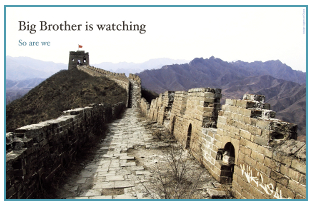 Ryan Gallagher, Open Democracy: Wikileaks: the truth is not treason Ryan Gallagher, Open Democracy: Wikileaks: the truth is not treason
"As international reaction testifies, the repercussions of Cablegate are massive. Wikileaks is changing the world without invitation, and the political establishment does not approve.[...]
“You can kill a man but you can't kill an idea,” as the civil rights activist Medgar Evers once said. And an idea is precisely what Wikileaks has become. It is no longer simply a website – it is a pure expression of democratic ideals, a philosophy realised by the force of technology. The powerful may condemn and attempt to repress Wikileaks and all it represents, but the situation has long since spun far from their control. Facilitated by the internet, a new battleground has been established. All traditions now hang in the balance and all bets are off."
Read more
Matthew Down, National Journal: To Tell the Truth
"Everyone in Washington claims to support transparency and government openness during campaign season and when it’s popular to do so. They castigate the other side when it does things in secret and suggest that its intentions must be nefarious if it is unwilling to make its deliberations public. But when an organization discloses how our foreign policy is conducted, some of these same people claim that the release will endanger lives or threaten national security, or that the founder of WikiLeaks is a criminal.
When did we decide that we trust the government more than its citizens? And that revealing the truth about the government is wrong? And why is the media complicit in this? Did we not learn anything from the run-up to the Iraq war when no one asked hard questions about the justifications for the war and when we accepted statements from government officials without proper pushback?[...]
If we want to restore trust in our government, maybe we can start by telling the truth, keeping fewer secrets, and respecting the privacy of average citizens a little more. As Ralph Waldo Emerson once said, “God offers to every mind its choice between truth and repose. Take which you please; you can never have both.”"
Read more
Guy Rundle, Crikey: WikiLeaks -- time for a register
"The first four stories on the UK news tonight were all either created by, or transformed by, the WikiLeaks Cablegate releases.
The governor of the Bank of England has been revealed as no benign public servant, but a player, trying to push the incoming government towards a harsher, more purely Thatcherite economic policy, and worried that they lacked the guts to do it; the Sri Lankan President was greeted with a huge demonstration supercharged with revelations of government involvement in massacres of Tamils; the "special relationship" is being battered by revelations of non-reciprocity on extradition, spy flyovers and the like; and even the separate news of Russia's winning the 2018 World Cup was set in the context of its utter corruption -- something that many people now felt they knew as much about as the elite, dictating the policy we should take towards them.
How long this will go on no-one knows. But while it does, power relations are being subtly transformed in ways that may have effects for some time to come. Once WikiLeaks manage to secure service, and eventually place the Cablegate logs online, there will be three huge volumes -- the Iraq logs, the Afghan logs and Cablegate -- which effectively constitute an alternative history of the present."
Read more
Jim Naureckas, FAIR: WikiLeaks Hasn't 'Leaked' Anything
"Actually, Julian Assange didn't leak anything--he can't, because he didn't have access to classified documents. Someone (or someones) who did have such access leaked those documents to Assange's WikiLeaks, which, as a journalistic organization, made them available to the world, both directly and through other media partners.
This distinction, which is widely ignored in commentary on WikiLeaks, is actually quite important, because the ethical obligations of a government official with a security clearance are quite different from those of a media outlet.[...]
To treat Assange as a leaker when he is, in fact, a journalist is not only morally confusing, it's quite dangerous to journalists in general. If the government can declare Assange to be spy or a terrorist because he's published classified documents he's received, every investigative journalist who does the same thing is in deep trouble."
Read more
John Naughton: What the attacks on WikiLeaks tell us
"Like most people, I’ve only read a fraction of what’s been published by WikiLeaks, but one thing that might explain the official hysteria about the revelations is the way they comprehensively expose the way political elites in Western democracies have been lying to their electorates. The leaks make it abundantly clear not just that the US-Anglo-European adventure in Afghanistan is doomed (because even the dogs in the street know that, as we say in Ireland), but more importantly that the US and UK governments privately admit that too.
The problem is that they cannot face their electorates — who also happen to be the taxpayers who are funding this folly — and tell them this.[...]
What WikiLeaks is exposing is the way our democratic system has been hollowed out. Governments and Western political elites have been shown to be incompetent (New Labour and Bush Jnr in not regulating the financial sector; all governments in the area of climate change), corrupt (Fianna Fail in Ireland, Berlusconi in Italy; all governments in relation to the arms trade) or recklessly militaristic (Bush Jnr and Tony Blair in Iraq) and yet nowhere have they been called to account in any effective way. Instead they have obfuscated, lied or blustered their way through. And when, finally, the veil of secrecy is lifted in a really effective way, their reaction is to try to silence the messenger — as Noam Chomsky pointed out."
Read more
Bernard Keane, Crikey: Missing the point on WikiLeaks
"This rolling series of releases — and WikiLeaks has barely begun to release the amount of material it has — is raising fundamental issues not merely about statecraft and diplomacy but information, power and the role of the media. Guy Rundle spotted this immediately, and while I would say that, wouldn’t I, his analysis has been the best you’ll see in an Australian publication. This is about far more than a simple matter of leaking sensitive cables, or newspaper coverage of those leaks.
Instead we’re given an uncomprehending coverage by the Australian media, as if it simply can’t process what’s happening, and needs to keep trying different narratives to see if they fit what’s being observed, sticking with whatever seems to temporarily do the trick.[...]
It’s not entirely fair to blame the media, though, because the Australian government is doing exactly the same thing. The response of the federal government has been… I was going to say “instructive”, but it’s more accurately, and sadly, affirmative of what you suspected, that politicians and bureaucrats can’t see this through any other than a rather 20th century, Cold War-style lens."
Read more
James Moore, The Huffington Post: WikiLeaks and the Myth of Journalistic Objectivity
"There is a very simple reason WikiLeaks has sent a furious storm of outrage across the globe and it has very little to do with diplomatic impropriety. It is this: The public is uninformed because of inadequate journalism. Consumers of information have little more to digest than Kim Kardashian's latest paramour or the size of Mark Zuckerberg's jet. Very few publishers or broadcasters post reporters to foreign datelines and give them time to develop relationships that lead to information. Consequently, journalism is atrophying from the extremities inward and the small heart it has will soon become even more endangered.
So, long live WikiLeaks and Julian Assange. And if Pfc. Bradley Manning is the leaker, he deserves the Presidential Medal of Freedom.
Good government, if such a thing exists, is the product of transparency. Americans have very little idea of the back-stories that lead to the events they see on the nightly news or read about on the net. How did such messes end up being such messes? If journalism were functioning at appropriate levels, there would have been stories that reported some of the information contained in the cables now published around the globe."
Read more
Source: wlcentral.org
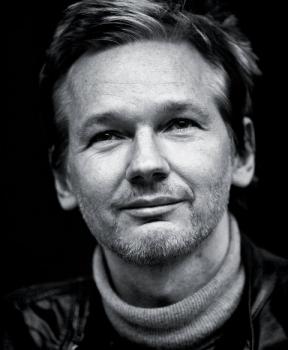 The New York Times' T Magazine features a short profile on Julian Assange and WikiLeaks: The New York Times' T Magazine features a short profile on Julian Assange and WikiLeaks:
"Julian Assange and WikiLeaks have been jettisoned to fame or notoriety (choose your noun, please) not because of a passing political battle but for reasons much deeper: the desire to possess, distribute and devour information. Ever since the release in July this year of some 92,000 documents relating to America’s involvement in Afghanistan, an old joke from Communist times keeps spinning around my head. ‘‘We cannot predict the future,’’ announces the newsreader of Soviet radio reporting on the Politburo’s deliberations, ‘‘but the past is changing before our very eyes.’’ Now our understanding of the nature of the intervention in Iraq has also changed radically with the publication of a still more astonishing collection of 391,832 secret United States military field reports from the kaleidoscopic theaters of battle.[...]
Assange understands full well the significance of these documents and their surreptitious transmission, and that knowledge translates into power and influence. For most of history, government has enjoyed an easy superiority in adjusting the ebb and flow of information. Now the rules of the contest have changed. In contrast to the petabytes of data flotsam, half-truths and speculation that drift daily around the Internet, WikiLeaks spews forth unvarnished, sensitive truths. Assange’s extraordinary project provides transparency unbridled. Historians, journalists and civic activists will continue to fish in these rich informational waters for some time if the organization does not collapse."
Read more
Photo credit: Max Vadukul, The New York Times
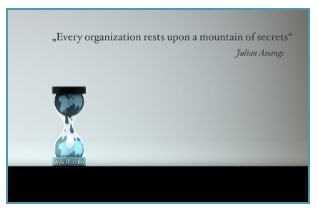 The Guardian: WikiLeaks cables blame Chinese government for Google hacking The Guardian: WikiLeaks cables blame Chinese government for Google hacking
"The hacking of Google that forced the search engine to withdraw from mainland China was orchestrated by a senior member of the communist politburo, according to classified information sent by US diplomats to Hillary Clinton's state department in Washington.
The leading politician became hostile to Google after he searched his own name and found articles criticising him personally, leaked cables from the US embassy in Beijing say.
That single act prompted a politically inspired assault on Google, forcing it to "walk away from a potential market of 400 million internet users" in January this year, amid a highly publicised row about internet censorship."
Read more
The Guardian: WikiLeaks cables: Spanish PM helped GE beat Rolls-Royce to helicopter deal
"Rolls-Royce lost a lucrative contract to supply helicopter engines to the Spanish military because of a personal intervention by Spain's prime minister, José Luis Zapatero, following vigorous lobbying from US diplomats, according to a secret cable from the US embassy in Madrid.
Eduardo Aguirre, the departing US ambassador to Spain, recounts behind-the-scenes diplomatic machinations that helped General Electric snatch a deal away from Rolls-Royce to provide engines for a state-of-the-art fleet of helicopters bought by the Spanish armed forces, a contract estimated by industry experts to be worth more than Ł200m.
Details of how Britain's best-known engineering company lost out to the Americans will fuel concerns that the so-called UK-US special relationship does not always deliver results."
Read more
The Guardian: WikiLeaks: Hillary Clinton's question: how can we stand up to Beijing?
"Hillary Clinton revealed America's deep anxiety over China's growing economic power and hold on US finances by asking Australia's then prime minister: "How do you deal toughly with your banker?"
The question, at a lunch with Kevin Rudd last March and reported in a US Department of State cable, underscores the evolving and often difficult relationship between the world's superpower and an increasingly mighty China. It is the largest holder of US treasury bonds, with around $870bn. Tensions are also highlighted in an economic dispatch, written by the US ambassador to Beijing last January, warning of a "rough" year for relations between the two countries and accusing China of hubris."
Read more
The Guardian: WikiLeaks cables reveal fears over Chinese cyber warfare
"The US fears China is plotting internet warfare via private companies that are known to have recruited top hackers.
According to leaked cables, the state department is concerned about Beijing's close working relationship with two major providers of information security in China. The companies have hired experienced hackers, who include Lin Yong, aka Lion, who founded the Honker Union of China, a Chinese hacker group that emerged after the US bombing of the Chinese embassy in Belgrade in 1999 and launched a series of cyber attacks on US government-related websites."
Read more
The New York Times: U.S. Aided Mexican Drug War, With Frustration
"More than a year ago — before drug cartels killed a gubernatorial candidate and began murdering mayors, before shootings and kidnappings in Mexico’s industrial capital, Monterrey, surged to the point that the State Department ordered children of American diplomats there to leave the country — a Mexican official admitted that the government feared it could lose control of parts of the nation.[...]
In the account of the meeting, which was included in the American diplomatic cables made public by WikiLeaks and posted on Mexican news Web sites, Mr. Gutiérrez was quoted as saying: “We have 18 months and if we do not produce a tangible success that is recognizable to the Mexican people, it will be difficult to sustain the confrontation into the next administration.” "
Read more
The New York Times: Cables Discuss Vast Hacking by a China That Fears the Web
"As China ratcheted up the pressure on Google to censor its Internet searches last year, the American Embassy sent a secret cable to Washington detailing one reason top Chinese leaders had become so obsessed with the Internet search company: they were Googling themselves.[...]
But the cables also appear to contain some suppositions by Chinese and Americans passed along by diplomats. For example, the cable dated earlier this year referring to the hacking attack on Google said: “A well-placed contact claims that the Chinese government coordinated the recent intrusions of Google systems. According to our contact, the closely held operations were directed at the Politburo Standing Committee level.”"
Read more
The New York Times: Yemen Sets Terms of a War on Al Qaeda
"One Obama administration security official after another was visiting to talk about terrorism, and Yemen’s redoubtable president, Ali Abdullah Saleh, seemed to be savoring his newfound leverage.
The Americans are “hot-blooded and hasty when you need us,” Mr. Saleh chided one visitor, Daniel Benjamin, the State Department’s counterterrorism chief, but “cold-blooded and British when we need you.” [...]
Mr. Saleh said coyly that while he was “satisfied” with the military equipment the United States was supplying, he “would like to be more satisfied in the future,” according to an account of the meeting sent to Washington."
Read more
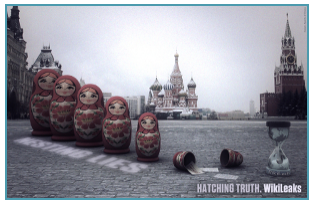 By Darren Bailey, Barrister and Solicitor of the Supreme Court of South Australia By Darren Bailey, Barrister and Solicitor of the Supreme Court of South Australia
Submitted on 04 December 2010
Subject: Julian Assange
Dear Prime Minister,
I wish to strongly associate myself with the letter addressed to you from NSW Supreme Court solicitor Peter Kemp, dated 4 December 2010, concerning the treatment of Mr Julian Assange.
His rights as an Australian citizen are clearly being infringed and should be vigorously protected "though the heavens may fall". As this nation's Prime Minister, and as a lawyer yourself, you ought to know this fact far better than your official statements would indicate.
Please address this issue as a matter of urgency. Demonstrate that to be an Australian citizen actually counts for something.
Sincerely,
Darren Bailey
Solicitor of the Supreme Court of South Australia
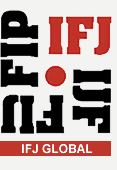 IFJ Condemns United States "Desperate and Dangerous" Backlash over WikiLeaks IFJ Condemns United States "Desperate and Dangerous" Backlash over WikiLeaks
The International Federation of Journalists (IFJ) today condemned the political backlash being mounted against the whistle-blowing website WikiLeaks and accused the United States of attacking free speech after it put pressure on the website's host server to shut down the site yesterday.
The website's host Amazon.com blocked access to WikiLeaks after United States officials condemned the torrent of revelations about political, business and diplomatic affairs that has given people around the world unprecedented access to detailed information from United States sources, much of it embarrassing to leading public figures.
"It is unacceptable to try to deny people the right to know," said Aidan White, IFJ General Secretary. "These revelations may be embarrassing in their detail, but they also expose corruption and double-dealing in public life that is worthy of public scrutiny. The response of the United States is desperate and dangerous because it goes against fundamental principles of free speech and democracy."
The IFJ has taken no position on the justification for the release of hundreds of thousands of internal documents which have made headlines around the world in the last few days, but it has welcomed the decision of WikiLeaks to use respected channels of journalism including Der Spiegel, The Guardian, the New York Times, Le Monde and El Pais to filter the information.
"This information is being processed by serious, professional journalists who are well aware of their responsibilities both to the public and to people implicated in these revelations," said White. "It is simply untenable to allege as some people have that lives are being put at risk here. The only casualty here is the culture of secrecy that has for too long drawn a curtain around the unsavory side of public life."
The IFJ is also concerned about the welfare and well-being of Julian Assange, the WikiLeaks founder and Bradley Manning, the United States soldier in Iraq who is under arrest and suspected of leaking the information. Both men are the target of a growing political campaign mounted by government officials and right-wing politicians.
Assange has been forced into hiding and is the subject of an international police investigation over allegations concerning sexual offences in Sweden. The IFJ says that calls by right wing commentators for Manning to be executed and that Assange be hunted down as a spy, as demanded by former Republican Vice-Presidential candidate Sarah Palin, show a mood of intolerance and persecution that is dangerous not just for the two men but for all journalists engaged in investigating public affairs.
"The IFJ and its members support the rights of whistle-blowers and the responsible reporting of information in the public interest," said White. "This over-reaction by politicians and their allies illustrates that they have not understood the historical significance of these events. The people's right to know is not something that can any longer be willfully ignored. They have to adjust to the fact journalists have a duty to report, fairly and accurately and with due respect for the rights of all parties in the public interest."
For more information, please contact IFJ on + 32 2 235 22 07
The IFJ represents more than 600.000 members in 125 countries
Source
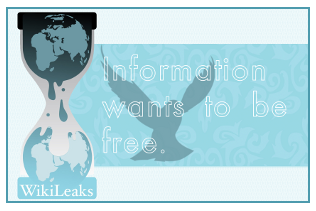 Julian Assange: "Geopolitics will be separated into pre and post 'Cablegate'" Julian Assange: "Geopolitics will be separated into pre and post 'Cablegate'"
El Pais features an interview with Julian Assange in the December 5th edition. He talked about the numerous death threats he has been receiving, the attacks against WikiLeaks, the significance of the Cablegate release, and fighting the Swedish case allegations.
On death threats: "We have hundreds of specific death threats from US military militants. That is not unusual, and we have become practiced from past experiences at ignoring such threats from Islamic extremists, African kleptocrats and so on. Recently the situation has changed with these threats now extending out to our lawyers and my children. However it is the specific calls from the elites of US society for our assassination, kidnapping and execution that is more concerning. These range from a US senate bill by John Ensign which seeks to declare us a "transnational threat" to assassination calls from former Bush speechwriters such as Marc Thiessen in The Washington Post and Bill O'Reilly of Fox News."
On the consequences of Cablegate: "It is too early to say yet. The ripples are just starting to flow throughout the world. But I believe geopolitics will be separated into pre and post Cablegate phases."
On the Swedish charges: "We will fight them and expose them, naturally. That there is something "wrong" with this case is now obvious to everyone."
Read the full interview in English or Spanish
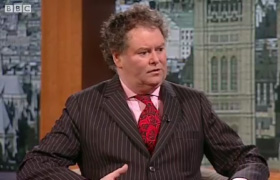
In an interview with the BBC's Andrew Marr, lawyer Mark Stephens said:
"In Sweden it's quite bizarre though, because the chief prosecutor, the director of public prosecution in Sweden dropped the entire case against him, saying there was absolutely nothing for him to face, back in September. And then, a few weeks ago, after the intervention of a Swedish politician, a new prosecutor, not in Stockholm, where Julian and these women had been, but in Gothenburg, began a new case, which of course has resulted in these warrants and of course the Interpol red notice being put out across this week.
It does seem to be a political stunt, I mean, I have, and his Swedish lawyer, have been trying to get in touch with the prosecutors since August. Now, usually, it's the prosecutor who does the pursuing, not the pursued. And in this particular case, Julian Assange has tried to vindicate himself, has tried to meet with the prosecutors, to have his good name restored."
He remarked that "A warrant was issued on Thursday by reports. We've asked for it. We've been ignored at this point," adding that "He's only wanted for interview, why not have that interview by consent, rather than this show trial?"
He also talked about the calls for assassination coming from "credible sources around the world," and particularly the United States, including people as high up as Sarah Palin. He said that Julian Assange would certainly fight deportation to Sweden on the grounds that it could lead to him being handed over to the US, where senior politicians have called for him to be executed.
Stephens added: "I'm really rather worried by the political motivations that appear to be behind this (the Sweden case). It doesn't escape my attention that Sweden was one of those lickspittle states which used its resources and its facilities for rendition flights."
(You can watch part of the BBC interview here. The full interview is available on BBC's iPlayer for UK audiences only.)
Swedish attorney Björn Hurtig echoed the same concerns: Reuters: "I have seen the documents, and I can't say that I think it is a set-up by the CIA or something. But I suspect that there is someone else who is pushing Sweden to (take) these most unproportional measures that they are doing right now, and is pushing Sweden to push Interpol to make this arrest warrant public. I think somebody has an interest in getting Julian to Sweden and maybe asking for him to be extradited to another country (from there)."
In an earlier statement to the press, Mark Stephens wrote:
"Mr. Assange has repeatedly sought meetings with the Prosecutrix - both in Sweden and subsequently - in order to answer her questions and clear his name. It is relevant that Mr. Assange sought permission from the Prosecutrix to leave Sweden and she gave him her permission. Since leaving Sweden Mr. Assange has continued to seek meetings with the Prosecutrix, but his requests have either been ignored or met with a refusal."
"Bizarrely, the Prosecutrix - having ignored or rejected those offers of voluntary cooperation - instead sought an arrest warrant to have Mr. Assange held incommunicado without giving his Swedish lawyer sufficient notice, access to evidence or information to take proper instructions from Mr. Assange. This action is all the more peculiar as she has not even issued a formal summons for his interrogation or brought charges against Mr. Assange," the statement added.
"Since the rape charge has been dropped, the current allegation he faces does not - as a matter of Swedish law - justify an arrest warrant for Mr. Assange. The sole ground for the warrant is the Prosecutor's blatantly false allegation that he is on the run from justice: he left Sweden lawfully and has offered himself for questioning," Stephens said.
"At this point in time we have no evidence pointing to a link between these allegations from August and the issue of the Interpol alert just two days after the WikiLeaks first release of US diplomatic cables. However, it is highly unusual for a red notice warrant to be issued in relation to the allegations reported as having been made, since Swedish law does not require custodial orders in relation to the allegation - indeed to our knowledge this is a unique action by the Swedish prosecuting authorities in applying for a red notice on the basis of these allegations," Stephens’ statement concluded.
"We are also investigating whether the Prosecutor's application to have Mr. Assange held incommunicado without access to lawyers, visitors or other prisoners - again a unique request - is in any way linked to this matter and the recent, rather bellicose US statements of an intention to prosecute Mr. Assange."
In an interview with Sweden's TV4, prosecutor Marianne Ny has categorically refused to meet with Julian Assange in the UK, despite repeated offers from Assange's lawyers, reports Expressen.
Update 1: Jennifer Robinson and Mark Stephens told The Guardian that they had been watched by people parked outside their houses for the past week.
"I've noticed people consistently sitting outside my house in the same cars with newspapers," said Robinson. "I probably noticed certain things a week ago, but mostly it's been the last three or four days."
Stephens said he, too, had had his home watched. Asked who he thought was monitoring him, he said: "The security services."
Robinson said the legal team was also experiencing "other forms of pressure" from Washington," including an inappropriate attempt by the State Department to "elide client and lawyer" in correspondence: "It's quite a serious situation," she said, adding that, according to the UN's Basic Principles on the Role of Lawyers, governments should ensure that lawyers "are able to perform all of their professional functions without intimidation, hindrance, harassment or improper interference" and that "lawyers shall not be identified with their clients or their clients' causes as a result of discharging their functions."
Read more
For our full Sweden case coverage, please click here.
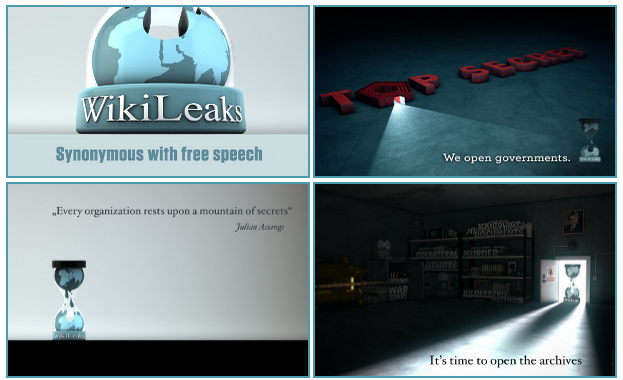
"The first serious infowar is now engaged. The field of battle is WikiLeaks. You are the troops," wrote John Perry Barlow on Twitter.
The censorship vs. free speech battle is escalating. This week has seen Amazon, Tableau, EveryDNS and PayPal dropping WikiLeaks services in quick succession, DDoS attacks that caused the site to go offline multiple times, and mounting political pressure from the US (2), Australian and French governments.
The US government went so far as to warn Switzerland against granting Julian Assange political asylum, reports 20 Minuten. In an open letter in Der Sonntag, the US ambassador to Switzerland, Donald Beyer, wrote that "Switzerland will have to consider very carefully whether to provide shelter to someone who is a fugitive from justice." However Swiss politicians including Cédric Wermuth, president of the Young Socialist Party, Bastien Girod, president of the Greens National Council, and the Swiss Pirate Party have reiterated their support for Assange and willingness to grant him asylum.
The onslaught is creating growing resistance. "American pressure to dissuade companies in the US from supporting the WikiLeaks website has led to an online backlash in which individuals are redirecting parts of their own sites to its Swedish internet host," writes The Guardian. "At the same time, scores of sites "mirroring" WikiLeaks have sprung up – by lunchtime today, the list was 74-strong and contained sites that have the same content as WikiLeaks and – crucially – link to the downloads of its leaks of 250,000 US diplomatic cables." The mirror list counts now hundreds of domains.
WikiLeaks' Swiss host, Switch, said that there was "no reason" why the site should be forced offline, despite demands from France and the US, in a statement released by the Swiss Pirate Party. French host OVH declared that it was up to judges, and "not up to the politicians or OVH to request or decide the closure of the site," in a response to the French government.
Jon Karlung, the CEO of WikiLeaks's Swedish host, Bahnhof, told The Daily Beast that "The service is provided in Sweden — where Swedish law applies. We are not subject to American law, Chinese laws or Iranian laws either, for that matter. WikiLeaks is just a normal business client. We do not treat them any different than any other client." He said that the US had not contacted the company to ask it to cancel hosting for WikiLeaks, and when asked whether Bahnhof would comply if such a request were made, he answered "Of course not."
Evgeny Morozov has cautioned in The Financial Times that the US backlash against WikiLeaks and Julian Assange may have unintended consequences: "WikiLeaks could be transformed from a handful of volunteers to a global movement of politicised geeks clamouring for revenge. Today’s WikiLeaks talks the language of transparency, but it could quickly develop a new code of explicit anti-Americanism, anti-imperialism and anti-globalisation.[...] An aggressive attempt to go after WikiLeaks – by blocking its web access, for instance, or by harassing its members – could install Mr Assange (or whoever succeeds him) at the helm of a powerful new global movement able to paralyse the work of governments and corporations around the world."
Update: Internet activist group Anonymous has joined the fight, with a manifesto in support of Julian Assange and WikiLeaks.
The New York Times reports: "Gregg Housh, a prominent member of the group, said by telephone from Boston that an orchestrated effort was under way to attack companies that have refused to support WikiLeaks and to post multiple copies of the leaked material.[...] “The reason is amazingly simple,” Mr. Housh said of the campaign. “We all believe that information should be free, and the Internet should be free.” "
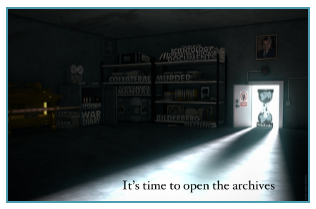
The Guardian: WikiLeaks cables portray Saudi Arabia as a cash machine for terrorists
"Saudi Arabia is the world's largest source of funds for Islamist militant groups such as the Afghan Taliban and Lashkar-e-Taiba – but the Saudi government is reluctant to stem the flow of money, according to Hillary Clinton.
"More needs to be done since Saudi Arabia remains a critical financial support base for al-Qaida, the Taliban, LeT and other terrorist groups," says a secret December 2009 paper signed by the US secretary of state. Her memo urged US diplomats to redouble their efforts to stop Gulf money reaching extremists in Pakistan and Afghanistan.
"Donors in Saudi Arabia constitute the most significant source of funding to Sunni terrorist groups worldwide," she said. Three other Arab countries are listed as sources of militant money: Qatar, Kuwait and the United Arab Emirates."
Read more
The Guardian: Brazil denied existence of Islamist militants, WikiLeaks cables show
"Brazil's government covered up the existence of Islamist terrorist suspects in São Paulo and border areas in an apparent bid to protect the country's image, according to secret US documents released by WikiLeaks.
The administration of former president Luiz Inácio Lula da Silva publicly denied that militant Islamists were active in Brazil, even while its law enforcement agencies co-operated closely with the US in monitoring suspects.
"Despite publicly expressed sentiments of high-level officials denying the existence of proven terrorist activity on Brazilian soil, Brazil's intelligence and law enforcement services are rightly concerned that terrorists could exploit Brazilian territory to support and facilitate terrorist attacks, whether domestically or abroad," said a US embassy cable."
Read more
The Guardian: WikiLeaks cables claim al-Jazeera changed coverage to suit Qatari foreign policy
"Qatar is using the Arabic news channel al-Jazeera as a bargaining chip in foreign policy negotiations by adapting its coverage to suit other foreign leaders and offering to cease critical transmissions in exchange for major concessions, US embassy cables released by WikiLeaks claim.
The memos flatly contradict al-Jazeera's insistence that it is editorially independent despite being heavily subsidised by the Gulf state."
Read more
Der Spiegel: At Sea in the Desert: US Diplomats Bewildered and Bamboozled in Baghdad
"Roughly 5,500 classified cables from the US Embassy in Baghdad paint a grim picture of why America's stunning military victory over Iraq devolved into disaster: The Americans allowed themselves to get entangled in the Sunni-Shiite conflict while being systematically outmaneuvered by the Iranians.[...]
Indeed, America's relations with the liberated Iraq have been anything but "friendly" and "constructive." Within just five years, the State Department went through five ambassadors and an army of analysts and consultants. And what made them fail can be gleaned from over 5,500 secret and confidential dispatches from the embassy in Baghdad."
Read more
Der Spiegel: 'Redder than Red': An American Portrait of China's Next Leader
"It is thought that Xi Jinping will become China's next president. But who is he? A source close to Xi has provided US diplomats with a detailed portrait of the up-and-coming functionary -- and says he is neither corrupt nor a fan of democracy.
He isn't corrupt, and money seems unimportant to him. He apparently has enough. He likes the United States, and was at one time fascinated by the mysteries of Buddhism and Asian martial arts.
On October 18, the Central Committee of the Chinese Communist Party appointed 57-year-old Xi Jinping vice-president of the powerful Central Military Commission. This makes it all but certain that he has been chosen to succeed Hu Jintao as Communist Party leader and Chinese president in 2012 and thus become one of the most powerful men in the world, if not the most powerful.
But who is Xi Jinping?"
Read more
Der Spiegel: US Dispatches from Beijing: 'True Democracy' Within China's Politburo?
"Is there any place in dictatorial China where votes are taken and discussions held -- rather than orders given and decrees issued? Indeed there is. And it is where one would least expect it: In the heart of Chinese power.
If one is to believe US diplomatic sources in Beijing, "true democracy" prevails in the Politburo of all places, within that little-known group of top apparatchiks consisting of 24 men and one woman.
No one outside China's ruling cadre knows who at the top of China's power structure decides what and why. No one knows who thinks what, who is allied with whom and who really has influence. Public debates are rare. But by talking to leading functionaries, experts from the US Embassy in Beijing managed to get a glimpse inside of China's inner circle."
Read more
Der Spiegel: Saudi Prince Turki bin Faisal on WikiLeaks: 'People Will No Longer Speak to American Diplomats Frankly'
"The United States has suffered serious political damage as a result of the WikiLeaks publication of secret documents, says Prince Turki bin Faisal, 65, the former intelligence chief and ambassador of the Kingdom of Saudi Arabia in Washington. "America's credibility and honesty are the victim of these leaks," Turki said in an interview with the news magazine DER SPIEGEL. "People, including officials, will no longer speak to American diplomats frankly.""
Read more
Le Monde: WikiLeaks : l'Arabie saoudite et le financement du terrorisme
"Le financement des activités terroristes ou des groupes considérés comme tels constitue une cible pour les experts américains dans la région du Golfe, tout particulièrement en Arabie saoudite.
Autant ils se félicitent de la réaction saoudienne contre ces groupes après les attentats d'Al-Qaida perpétrés dans le royaume, à partir de 2003, autant ils se plaignent des difficultés rencontrées pour convaincre le régime saoudien de la "priorité stratégique" que représentent les circuits de financement, selon une note de 2009 obtenue par WikiLeaks et consultée par Le Monde, pour Al-Qaida, les talibans afghans et leurs homologues pakistanais."
Read more
Le Monde: WikiLeaks : Les ingérences de l'Iran en Irak tracassent les Etats-Unis
"Menaces et promesses, aide financière, manipulations politiques, espionnage tous azimuts, tentatives d'influence religieuse, fournitures d'armes et d'explosifs à des milices "pro" ou "anti" gouvernementales selon les périodes, incidents sporadiques plus ou moins provoqués sur les frontières communes, contacts et visites multipliées entre les deux pays…
A en croire les télégrammes diplomatiques écrits entre 2004 et février 2010 par l'ambassade américaine de Bagdad, obtenus par WikiLeaks et révélés par Le Monde, la stratégie iranienne en Irak a usé, au fil des ans, de tous les instruments possibles et imaginables pour influer sur les affaires intérieures de son voisin."
Read more
Le Monde: WikiLeaks : France-Brésil, le couple, le sous-marin nucléaire et le Rafale
"La diplomatie américaine cherche à décortiquer les ressorts de la relation France-Brésil. Les évolutions du géant d'Amérique latine ne peuvent laisser Washington indifférent, pas plus que les transferts de technologie, notamment militaire, vers cette partie "émergente" du monde. En novembre 2009, dans un télégramme intitulé "la France et le Brésil : le début d'une histoire d'amour", l'ambassade américaine à Paris se penche sur le duo formé par Nicolas Sarkozy et le président du Brésil, Luis Inacio Lula da Silva.
Le constat le plus saillant est que derrière l'affichage très médiatisé d'amitié personnelle entre les deux chefs d'Etat, se nichent des enjeux stratégiques en termes de défense, avec une aide majeure apportée par la France au Brésil en matière de capacités militaires. Car au-delà du suspense – qui dure toujours – sur les perspectives de vente d'avions Rafale, une affaire plus discrète a été négociée : la livraison au Brésil du premier sous-marin à propulsion nucléaire du continent sud-américain."
Read more
El Pais: Cómo nos ven los estadounidenses: "Zapatero lleva mal que le den clases de algo"
"José Luis Rodríguez Zapatero y los políticos españoles más poderosos del momento son descritos descarnadamente en los documentos secretos y confidenciales de la Embajada de Estados Unidos en Madrid, que dedican especial atención al presidente del Gobierno y a los integrantes de sus dos círculos más próximos. En el primero, la legación estadounidense sitúa al vicepresidente Alfredo Pérez Rubalcaba; al ministro de Fomento, José Blanco; al portavoz socialista en el Congreso de los Diputados, José Antonio Alonso, y al secretario general de la Oficina del Presidente, Bernardino León, al que llaman "el chico de oro del Gobierno". En el segundo mencionan al "impredecible" Miguel Ángel Moratinos, ex ministro de Exteriores, a la "inmadura" Carme Chacón, ministra de Defensa, y al embajador en Estados Unidos, Jorge Dezcallar."
Read more
El Pais: Los lugares estratégicos de la Tierra
"Los cables secretos de la diplomacia estadounidense atestiguan el poderoso esfuerzo ejercido por la superpotencia en los rincones más lejanos y aparentemente insignificantes de la Tierra para proteger sus intereses y garantizar su seguridad, estabilidad y desarrollo. Uno de los ejemplos más esclarecedores del alcance de esa actitud global es la lista que el Departamento de Estado redacta cada año seleccionand o las infraestructuras civiles y recursos naturales del mundo que considera estratégicamente más relevantes.
La selección de 2008 contenía unos 300 elementos. Los puntos de interés suelen ser puertos, gasoductos, minas y empresas del sector químico, farmacéutico o de defensa. En España, por ejemplo, EE UU seleccionó tres elementos: el estrecho de Gibraltar, el gasoducto que une a la Península con Argelia y el laboratorio catalán Grifols. La importancia de los lugares es valorada por el grado de dependencia de ellos de EE UU, por el impacto que su eventual destrucción o alteración en el funcionamiento tendría sobre "la salud pública, la estabilidad económica y/o la seguridad nacional" estadounidense."
Read more
El Pais: EE UU acusa a donantes saudíes de financiar el terrorismo islamista
""Los donantes en Arabia Saudí constituyen la fuente más significativa de financiación de los grupos terroristas suníes en todo el mundo", asegura un despacho diplomático enviado hace un año por la Secretaría de Estado a sus embajadas en Riad, Abu Dhabi, Kuwait, Islamabad y Doha (documento 242073). El texto, uno de los más claros exponentes de la preocupación de EE UU por el dinero del terrorismo, les pide que recaben la cooperación de esos Gobiernos para poner coto a la recaudación de fondos de Al Qaeda y los talibanes. Pero en los 1.110 cables que tocan el asunto se vislumbra que las prioridades de algunos de sus aliados van por otros derroteros. Las menciones al progreso llevado a cabo por éstos no logran eclipsar la frustración estadounidense por la lentitud de sus avances."
Read more
El Pais: EE UU y Brasil colaboran en secreto contra los islamistas
"El Gobierno brasileño mantiene un doble discurso sobre la lucha antiterrorista en su propio país. Por un lado, niega que exista esa amenaza y protesta airadamente cuando se le menciona la triple frontera (entre Argentina, Paraguay y Brasil) como posible foco de apoyo a la organización islámista Hezbolá o de financiación de grupos extremistas, y por otro, colabora plenamente en el campo operativo con las agencias antiterroristas de Estados Unidos, no solo para investigar los indicios que le proporcionan, sino para intercambiar información propia. Así se desprende de los telegramas enviados por la Embajada de Estados Unidos en Brasil a lo largo de los últimos años."
Read more
|
|
Ci sono 9726 persone collegate
|
<
|
aprile 2024
|
>
|
L |
M |
M |
G |
V |
S |
D |
1 |
2 |
3 |
4 |
5 |
6 |
7 |
8 |
9 |
10 |
11 |
12 |
13 |
14 |
15 |
16 |
17 |
18 |
19 |
20 |
21 |
22 |
23 |
24 |
25 |
26 |
27 |
28 |
29 |
30 |
|
|
|
|
|
| |
|
|
|
|
|
|
26/04/2024 @ 00:11:17
script eseguito in 722 ms
|
 RSF: WikiLeaks hounded?
RSF: WikiLeaks hounded?

 (p)Link
(p)Link Commenti
Commenti Storico
Storico Stampa
Stampa The New York Times'
The New York Times' IFJ Condemns United States "Desperate and Dangerous" Backlash over WikiLeaks
IFJ Condemns United States "Desperate and Dangerous" Backlash over WikiLeaks




 Feed RSS 0.91
Feed RSS 0.91 Feed Atom 0.3
Feed Atom 0.3
